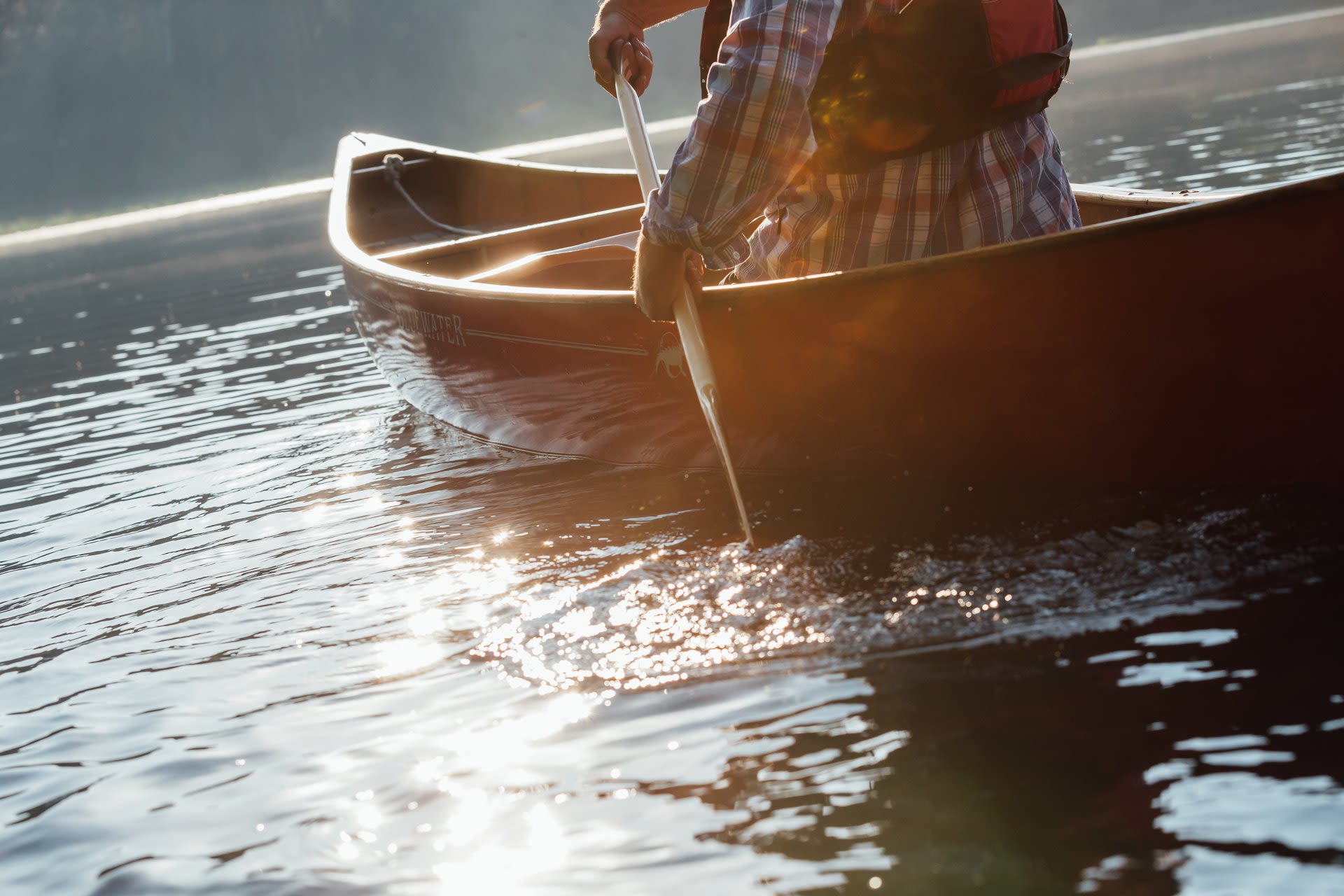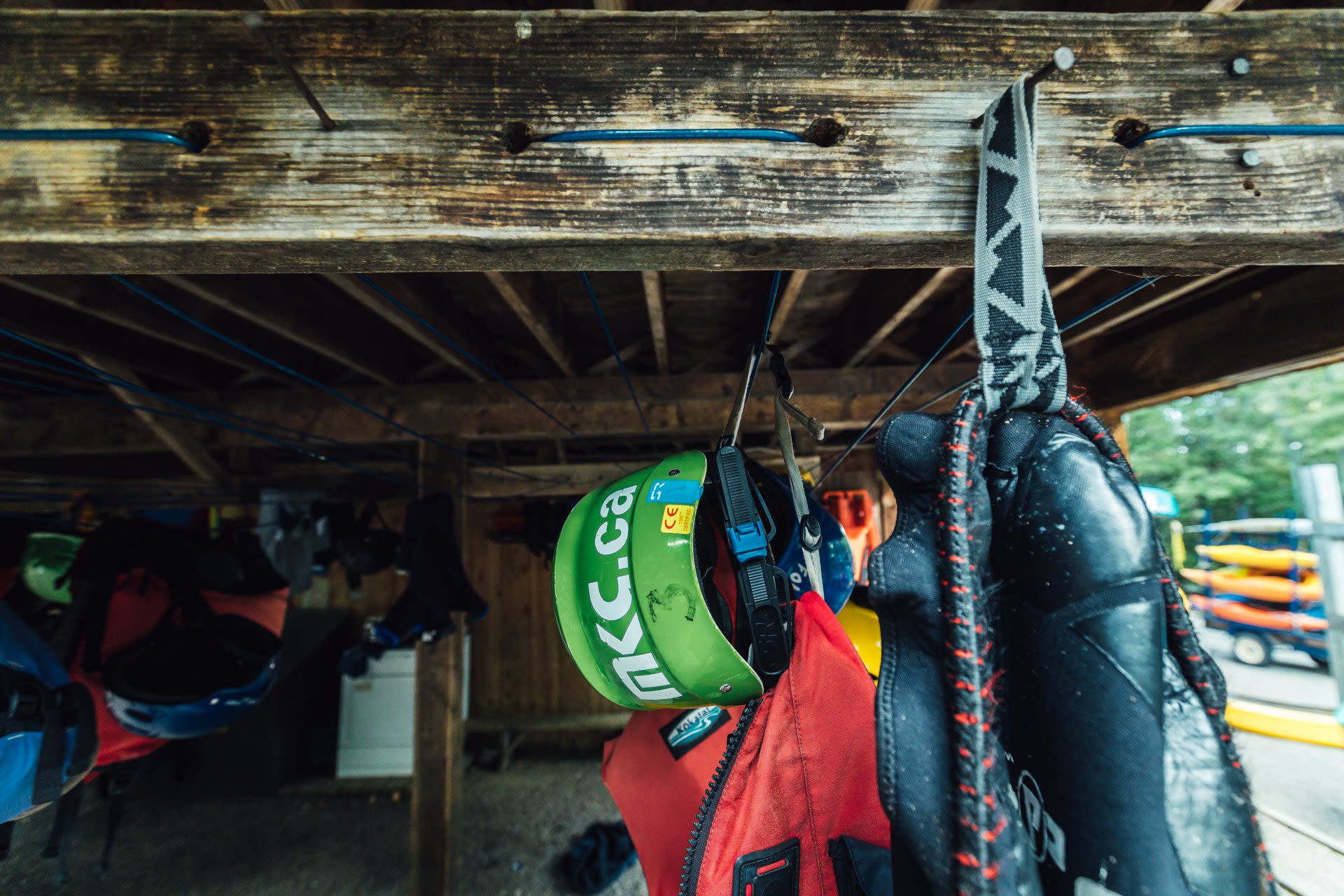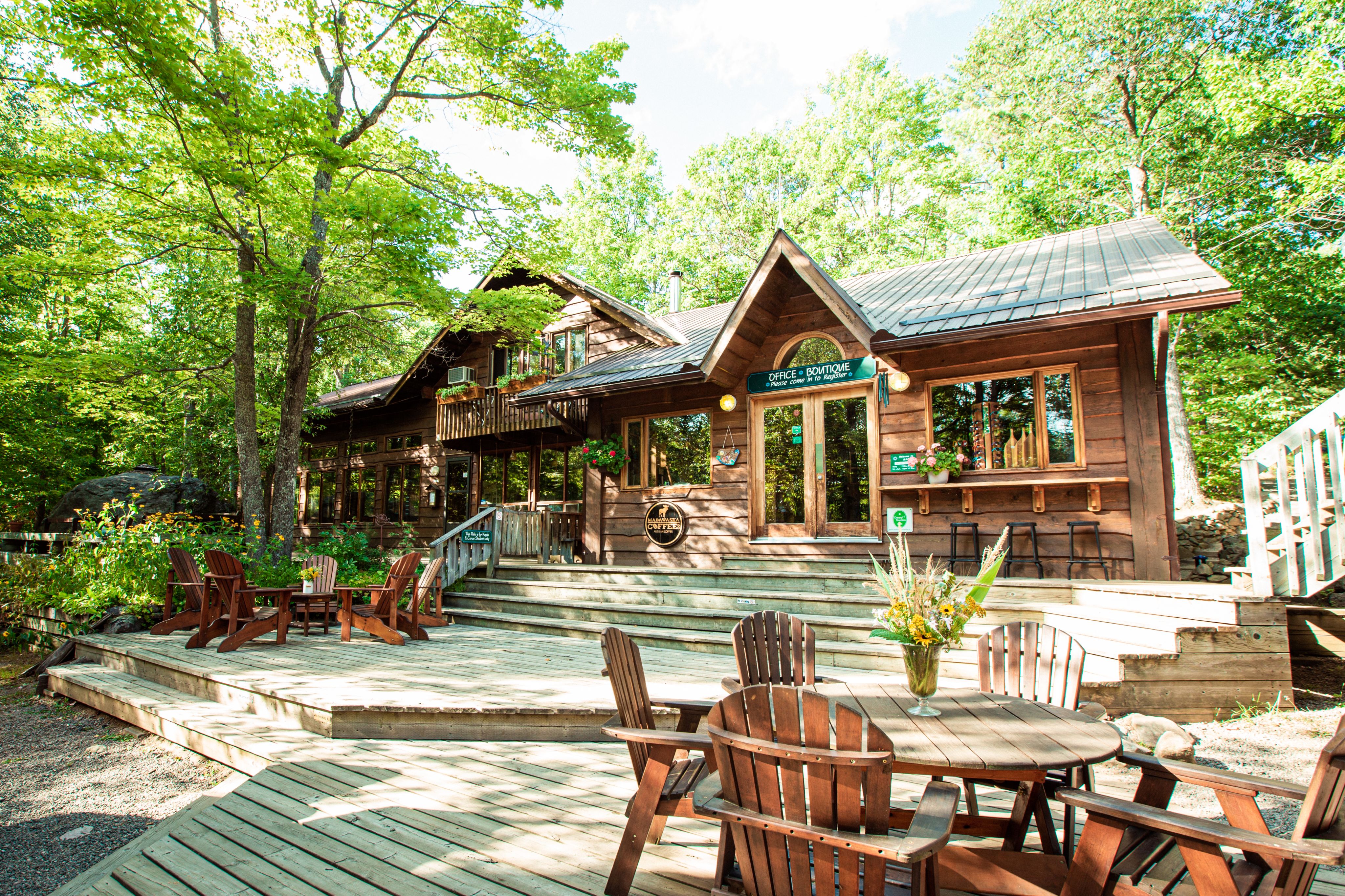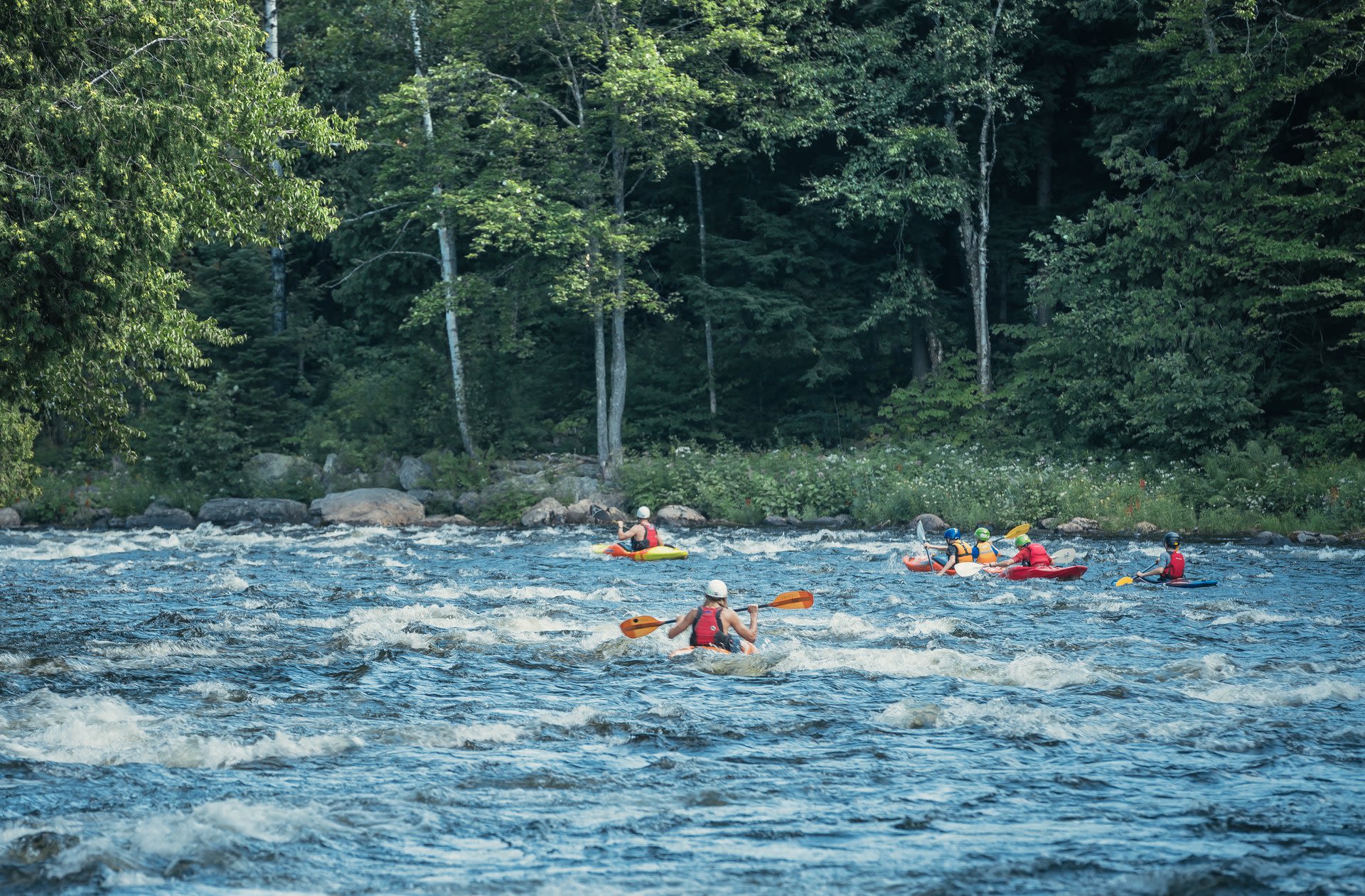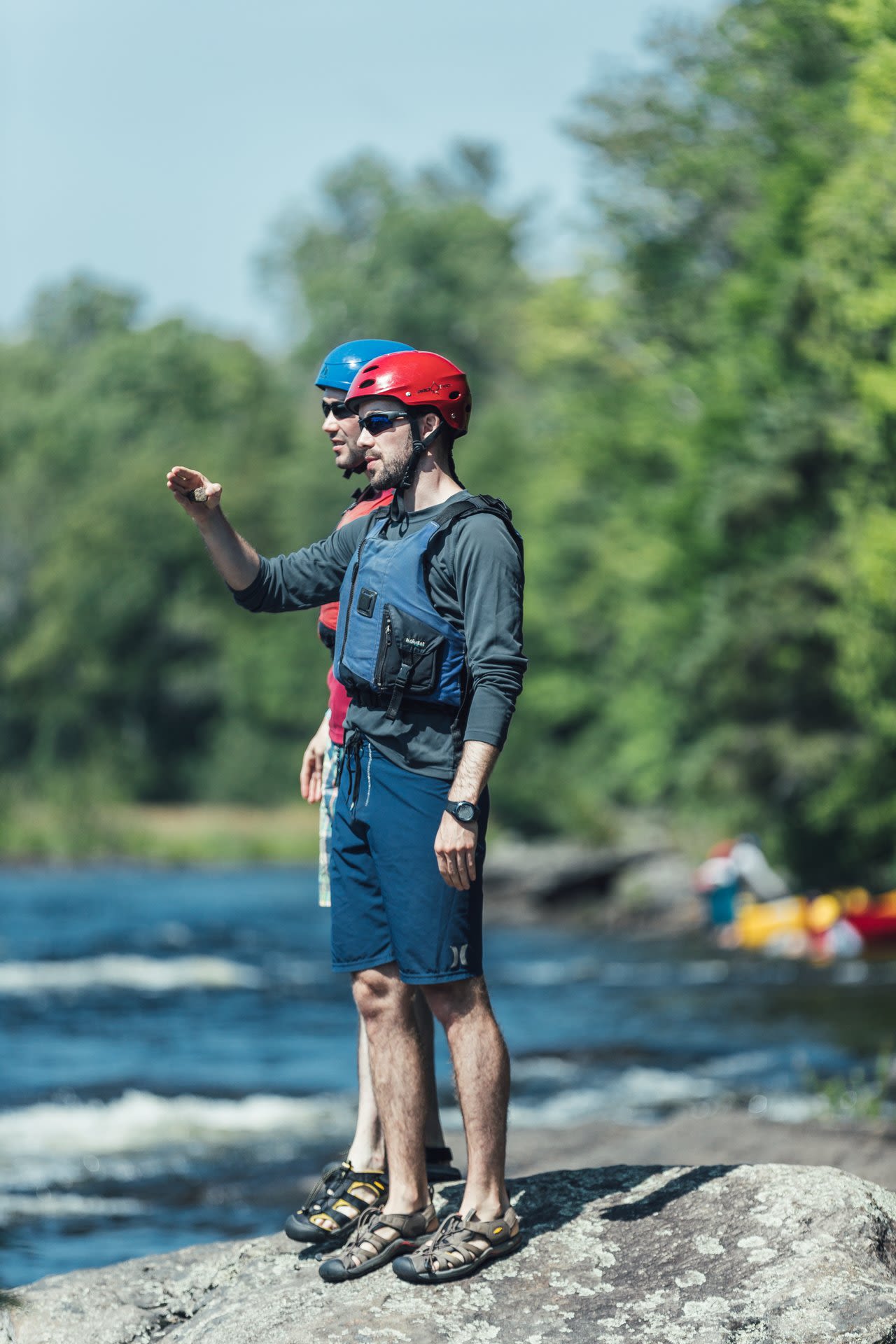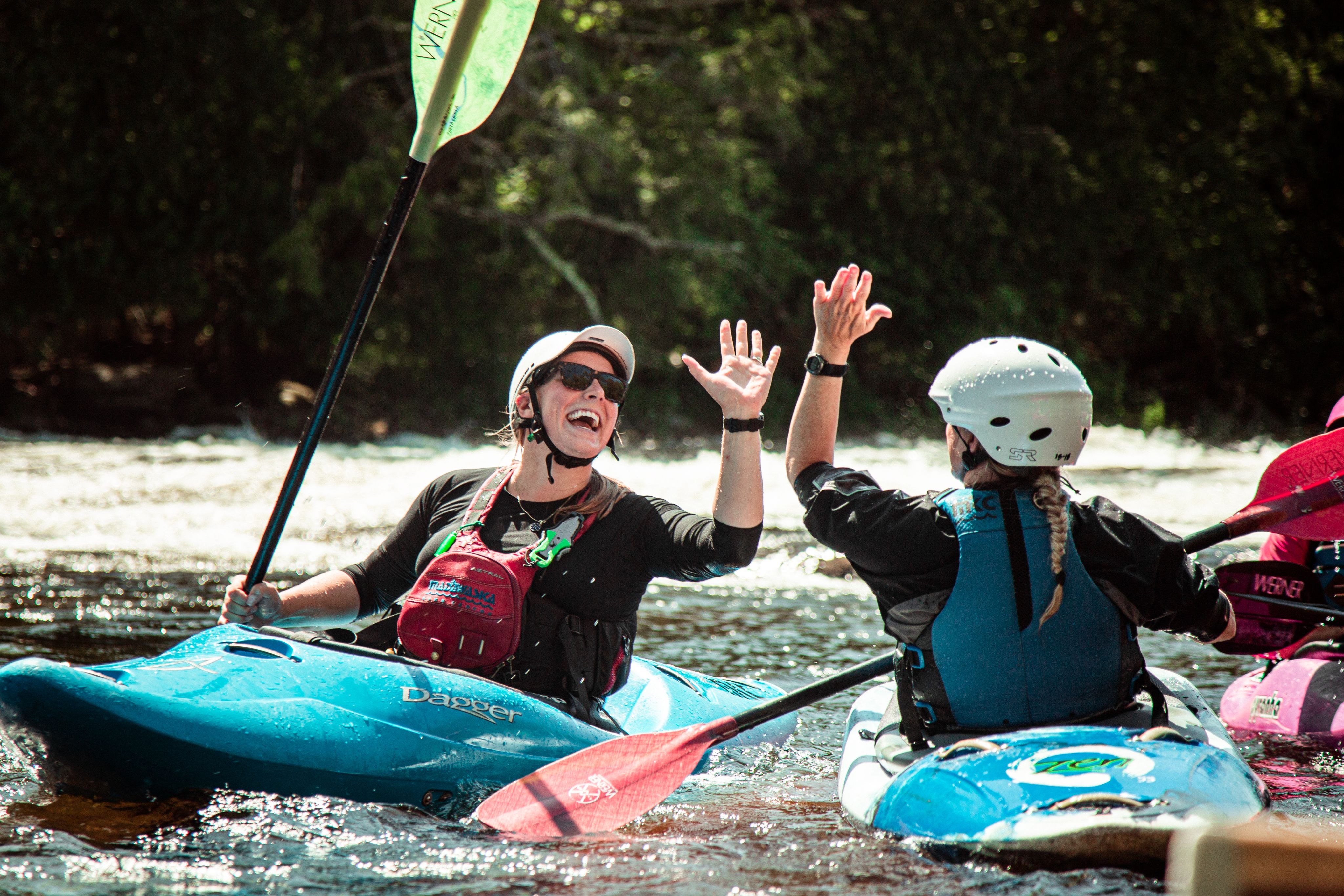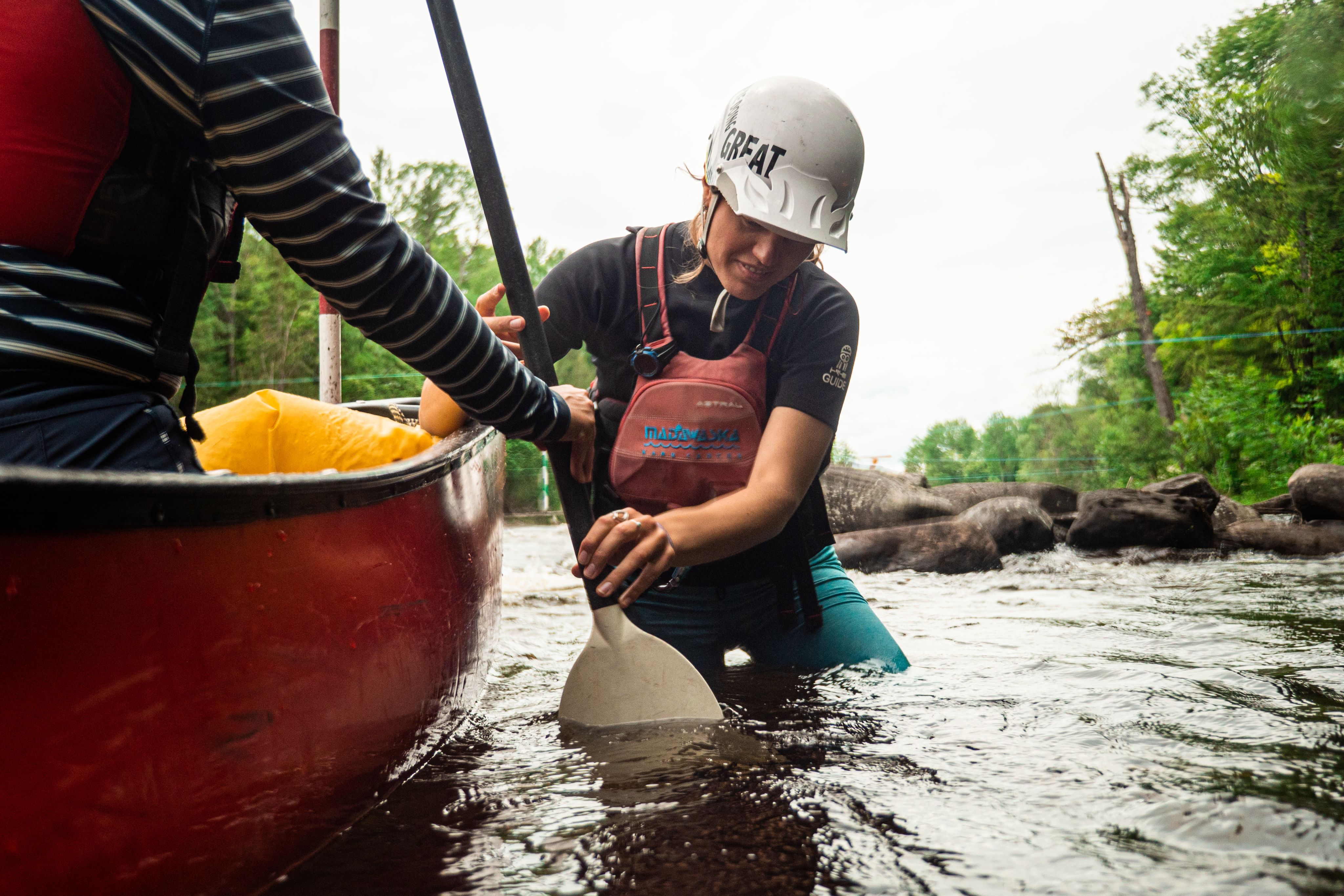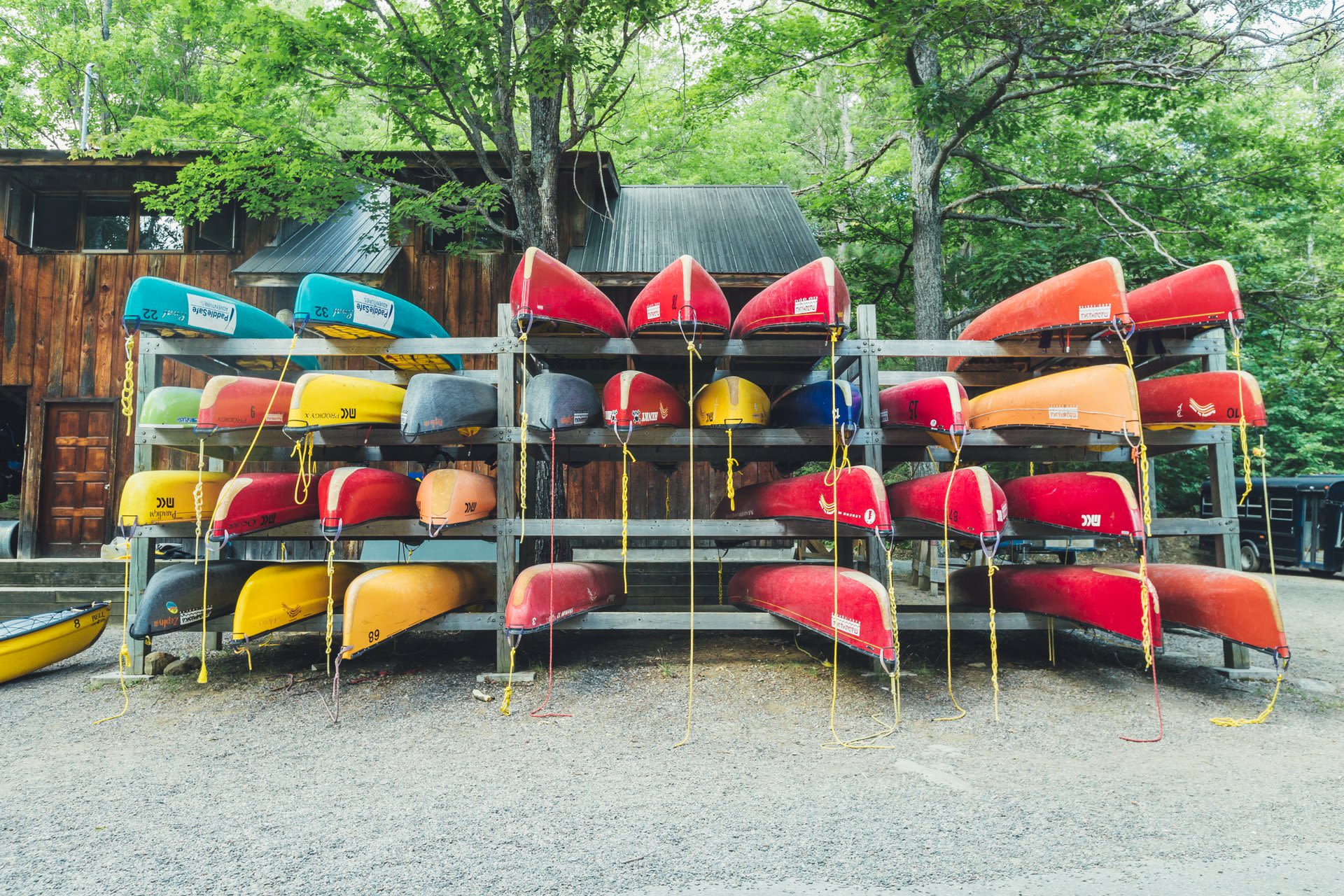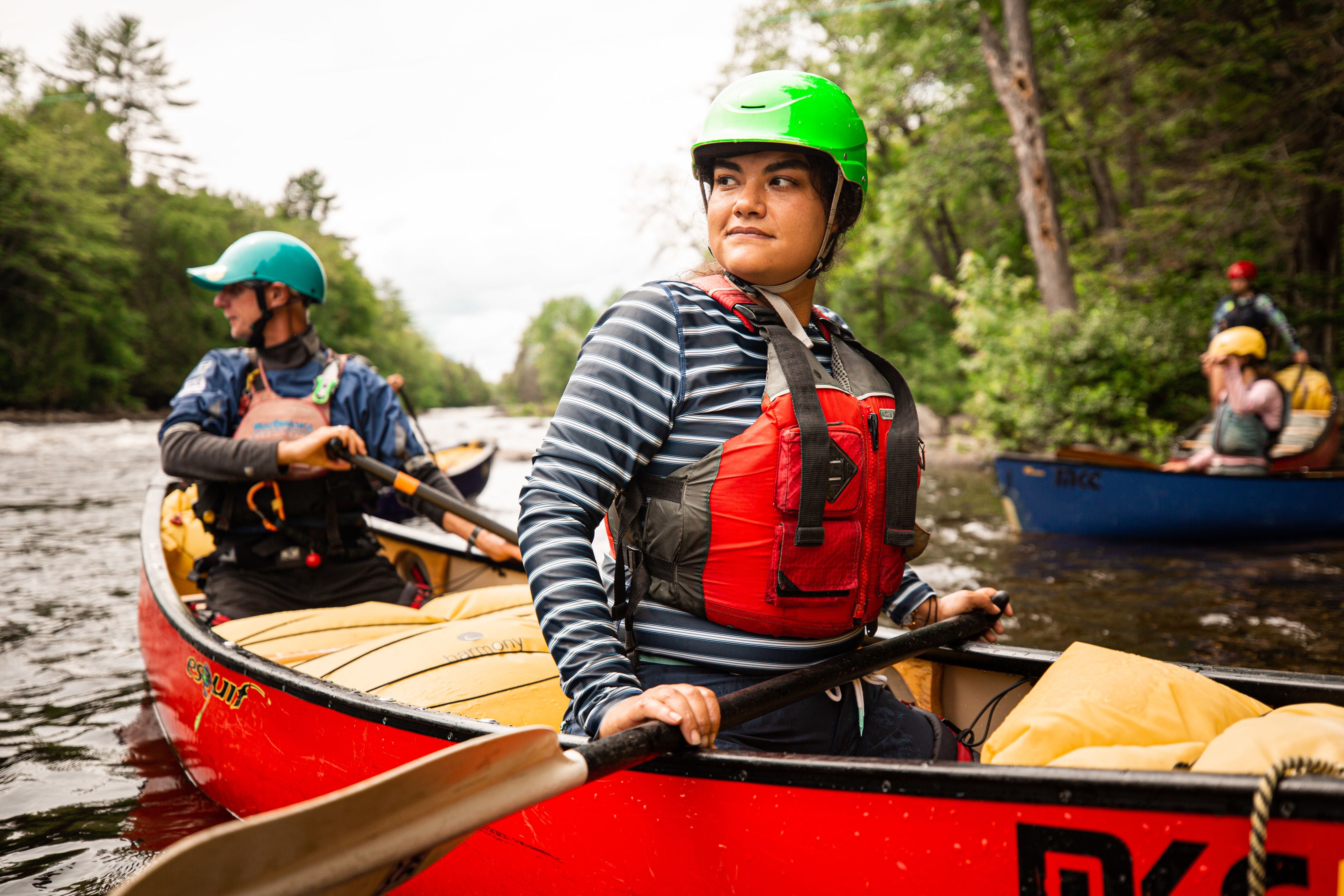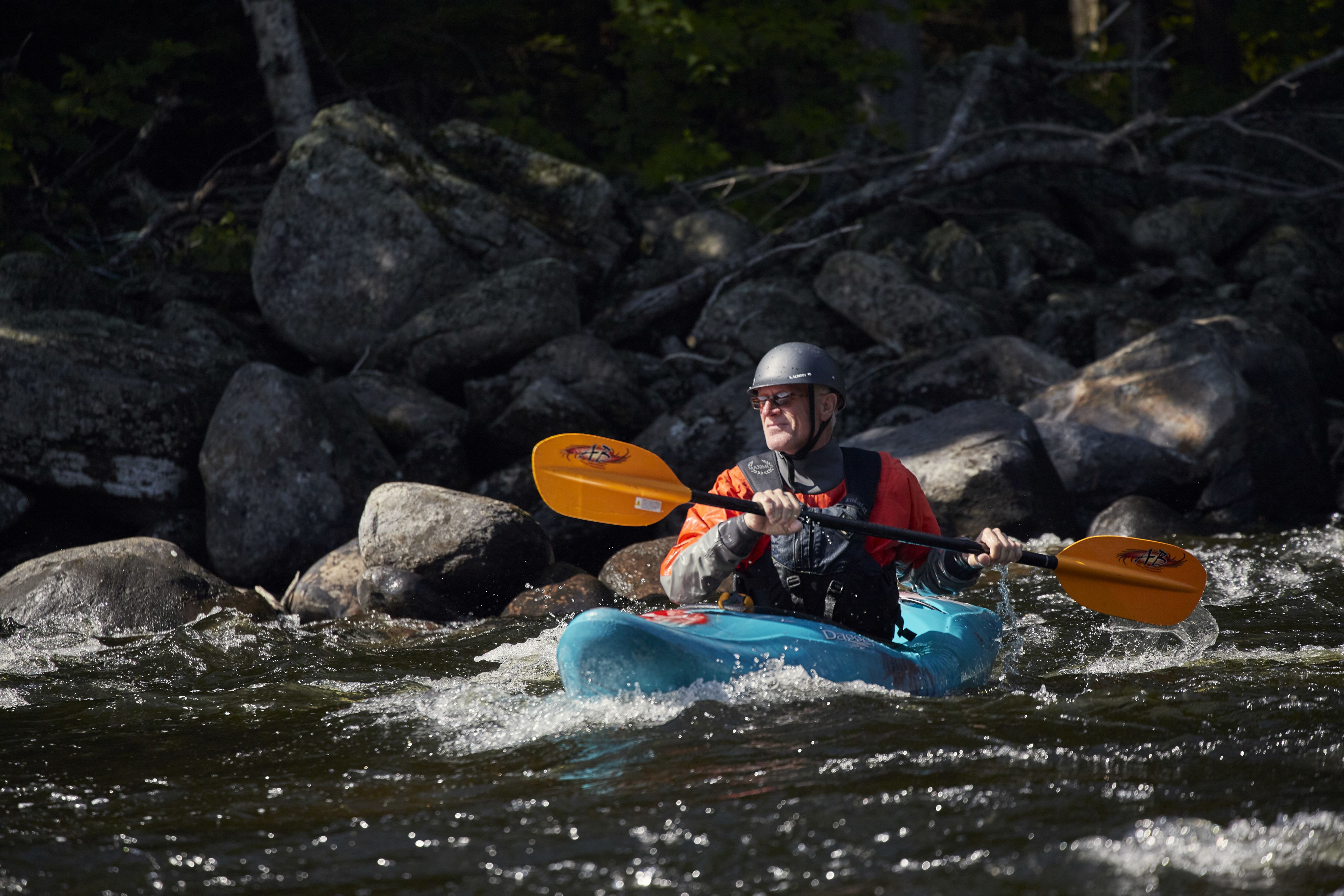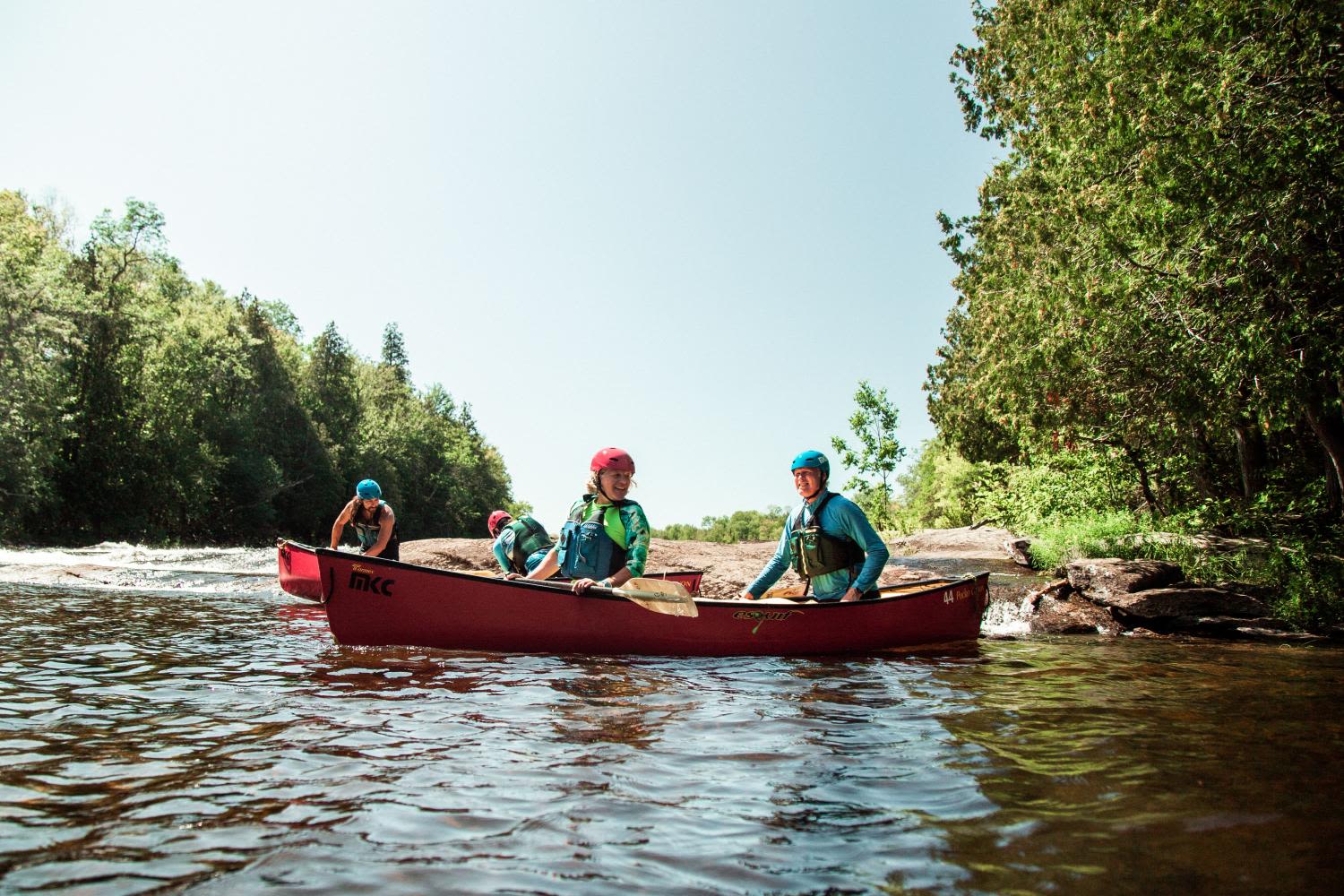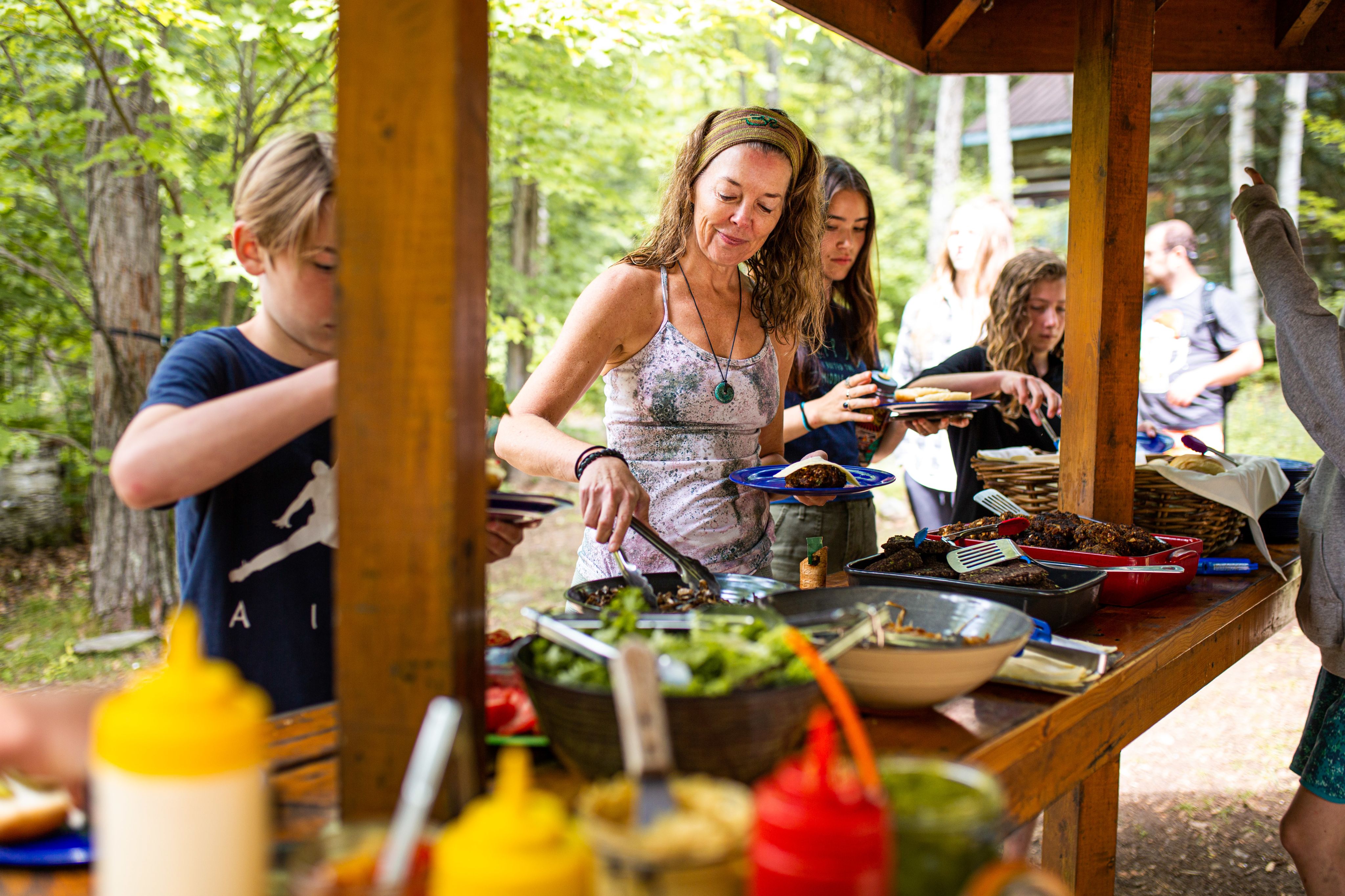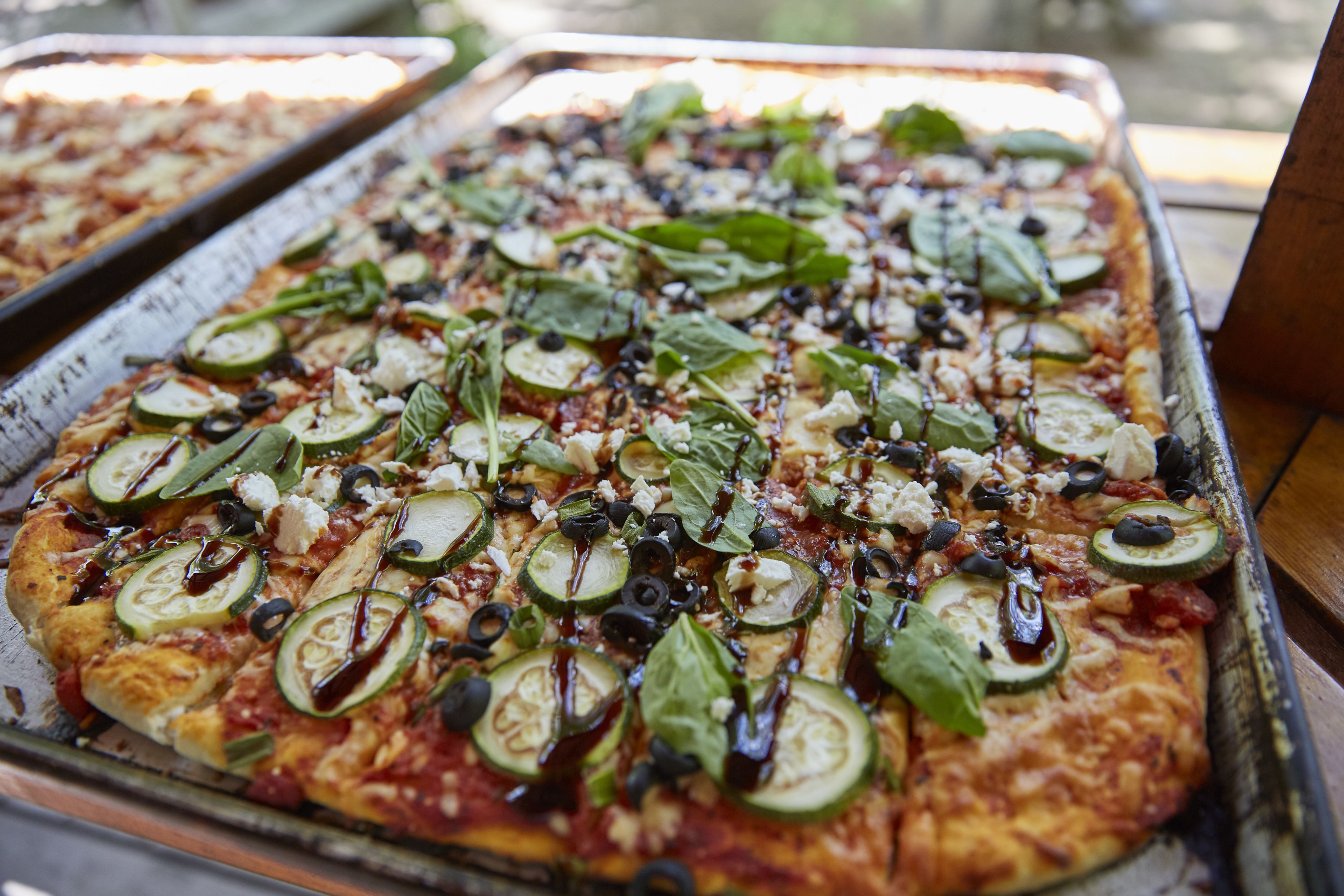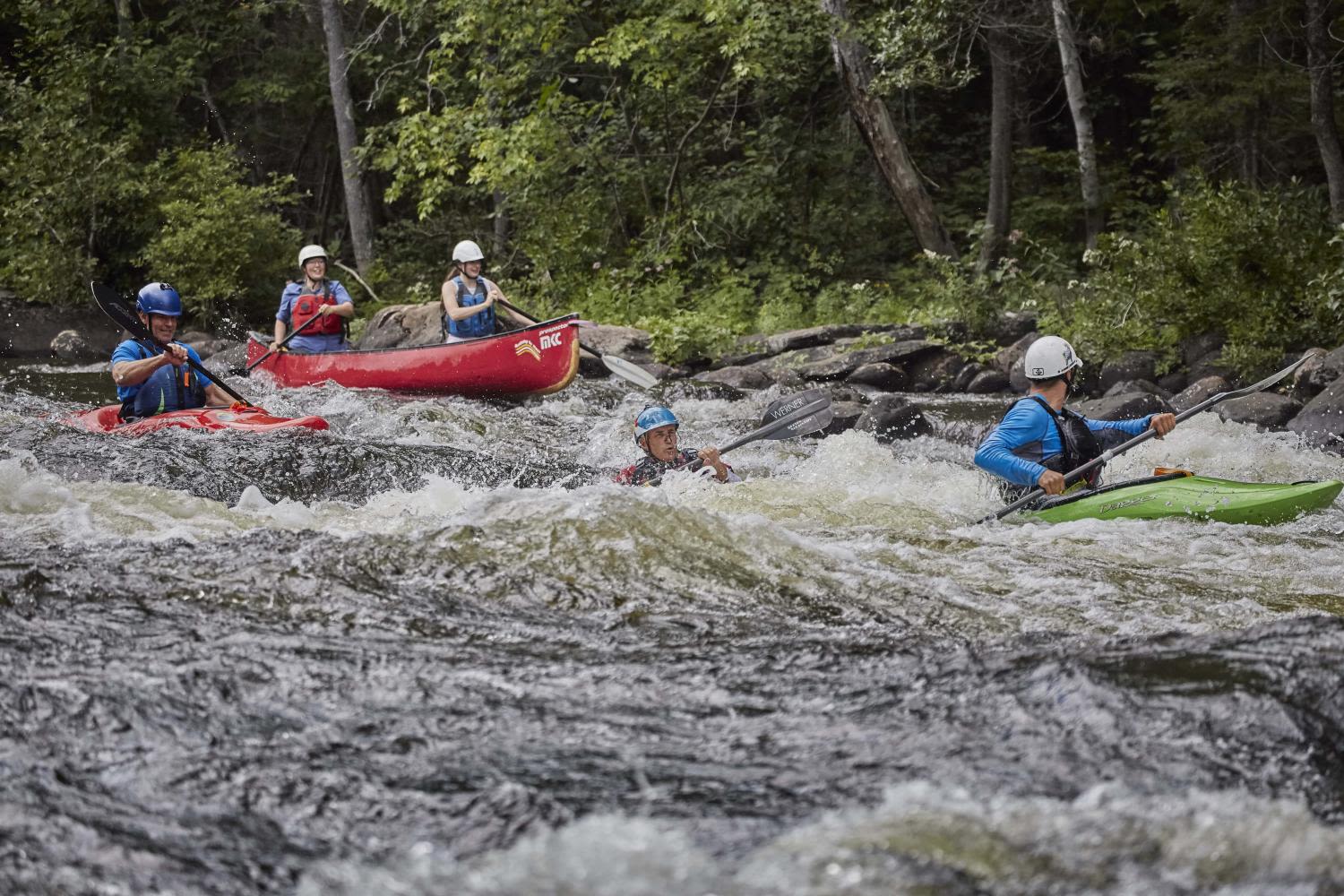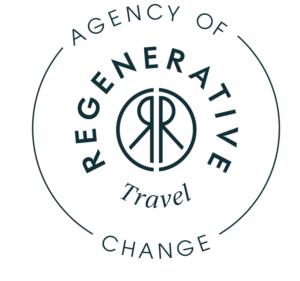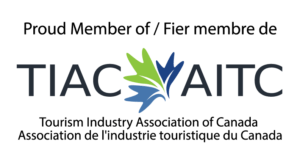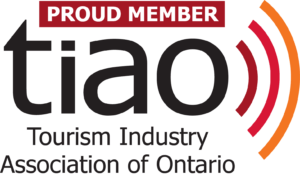Paddling the Mighty Madawaska
Discover the joys of paddling culture in Ontario's Highlands
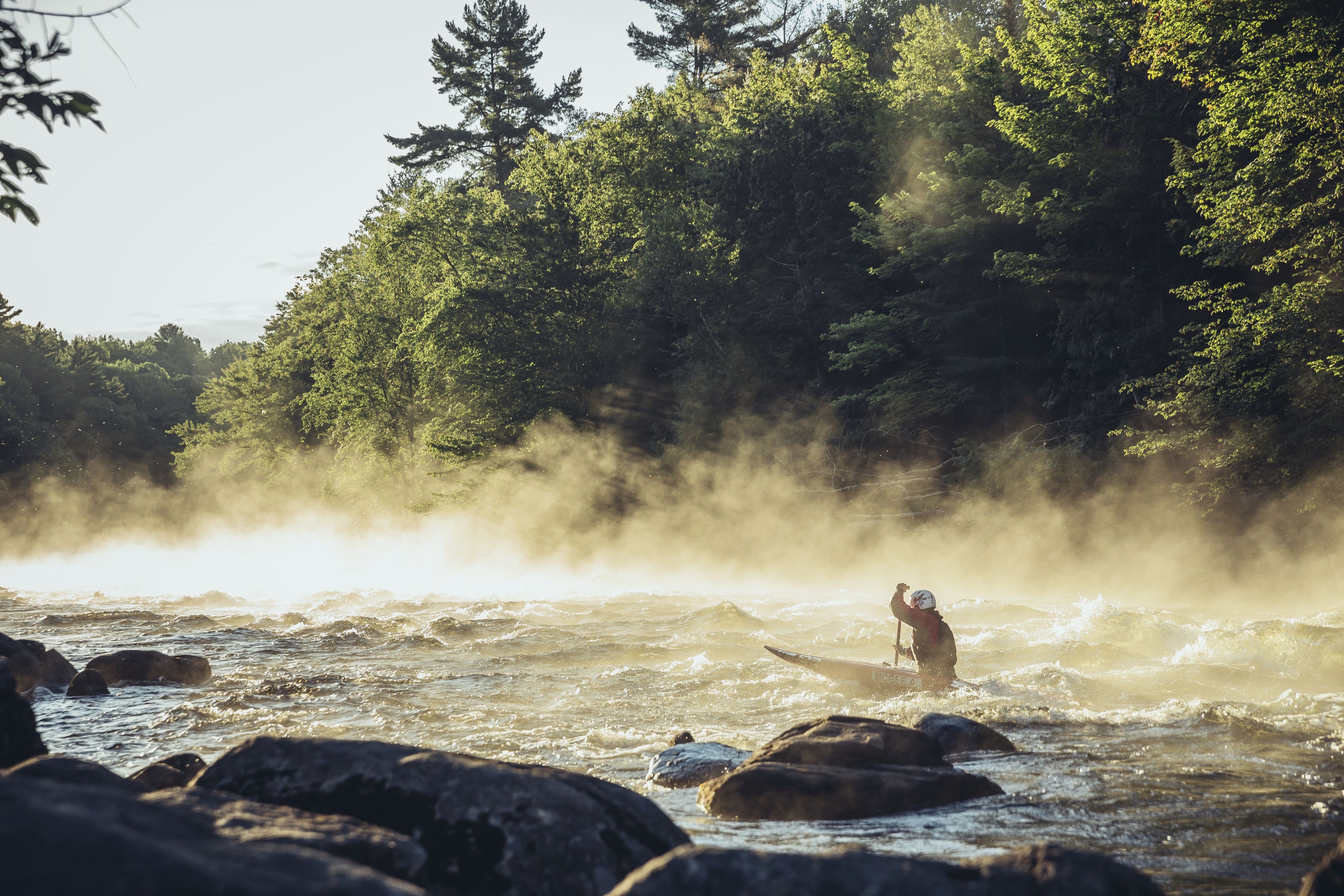
Being the lone member of our Landsby team who lives out west, I am often taking heat from my Toronto colleagues for being too west-centric in my view of Canada.
Admittedly, while I've seen quite a lot of the country, Ontario is one of my personal weak points. And so when I was invited to experience Ontario's Highlands this spring, I jumped at the chance to see a new part of Canada.
I was especially excited to get a taste of the famous Ontario paddling culture I had heard so much about.
Destination Ontario
Destination Ontario
From my days as a guide, I had done a bit of paddling -- but to be honest, it was pretty basic. The majority of it was on calm lakes helping European tourists with their first foray into canoeing. Quite often I found myself serving as both a motor and a rudder for elderly guests or sometimes sitting in the middle of a canoe trolling for trout as a younger couple practiced their J strokes. I had been in a canoe enough to convince a novice that I knew what I was doing, but by no means was I a paddler.
I was about to level up my skills.
One of the first things that struck me as I made my way north from Toronto was how many cars had canoes strapped to their roofs. Compared to out west, it was definitely a huge proportion.
Once I got to my destination in the Highlands, it immediately became apparent as to why. It is impossible to drive in a straight line in most parts of central and northern Ontario without hitting water and the Highlands are no different. I found myself navigating around lake after lake and I quickly understood why paddling is such a popular pastime in Ontario.
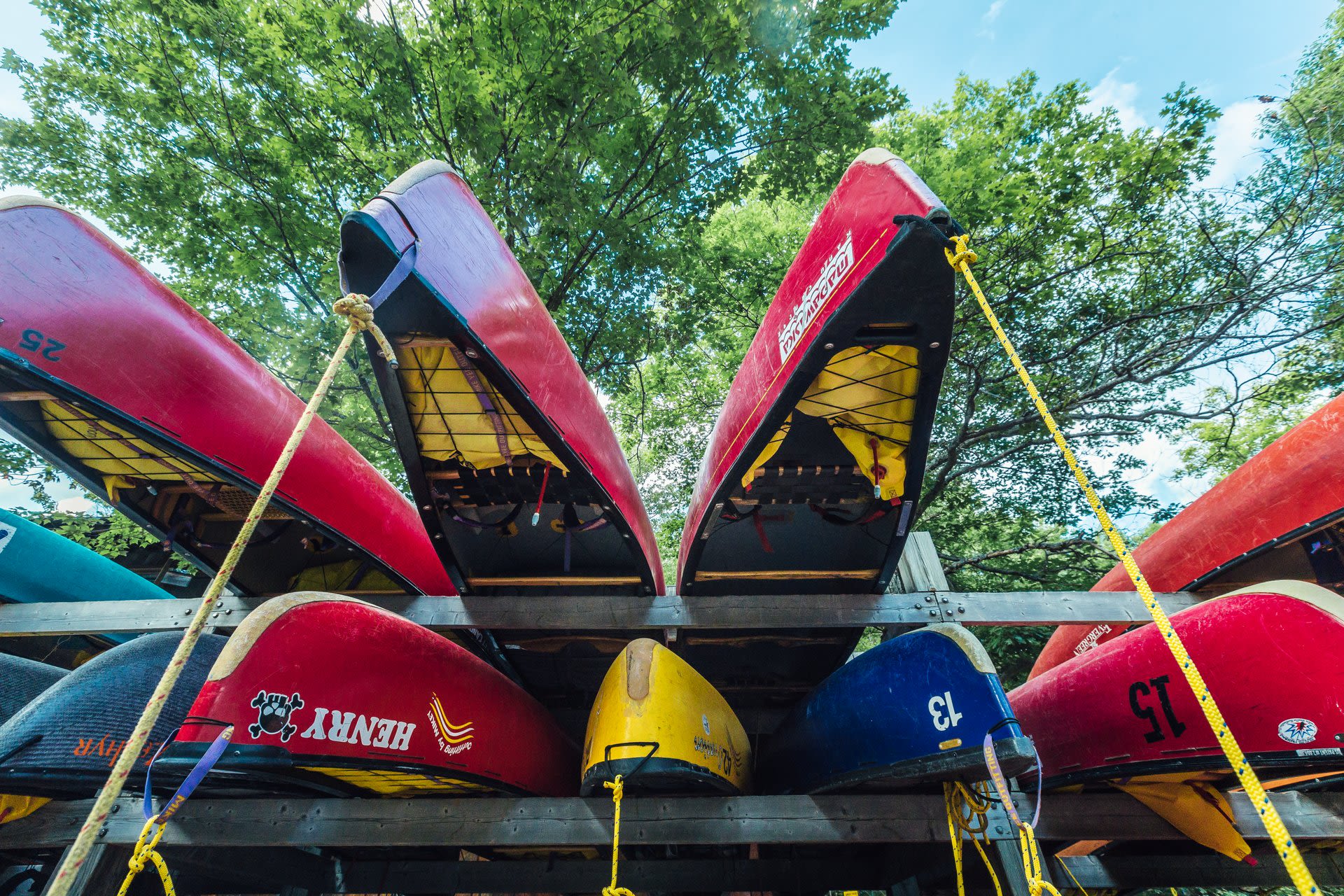
The Madawaska Kanu Centre (MKC) is located in Ontario's Highlands, just south of Barry's Bay.
It is here, along the shores of the fast-paced Madawaska River, that three generations of the Van Wijk family have taught the art of whitewater paddling to people from around the world.
From the get-go, it is clear that people come here to paddle. I was greeted by vans fully stocked with canoe trailers, gear sheds, and a plethora of neoprene and drysuits hanging out after a day on the river.
Stefi Van Wijk, the Director of the MKC, gave me a quick tour of the grounds. The centre has a large main building which houses the kitchen, dining area and main office. There is a range of accommodation choices for those staying the night, from campsites to simple private rooms to cabanas.
After settling into my cabana, it was time to go down for dinner. Meals are served buffet style in the dining hall which is a great place to get to know the other guests.
On my first night I decided to brave the black flies and join the guides sitting on the patio outside. I found out that many of them had pretty serious paddling backgrounds. Stefi herself had spent years guiding canoe expeditions in the Northwest Territories for Black Feather (one of Canada's top wilderness adventure companies) and apparently this is pretty common amongst the Madawaska staff. Some of our country's major outfitters send their guides to Madawaska for training or whitewater certifications.
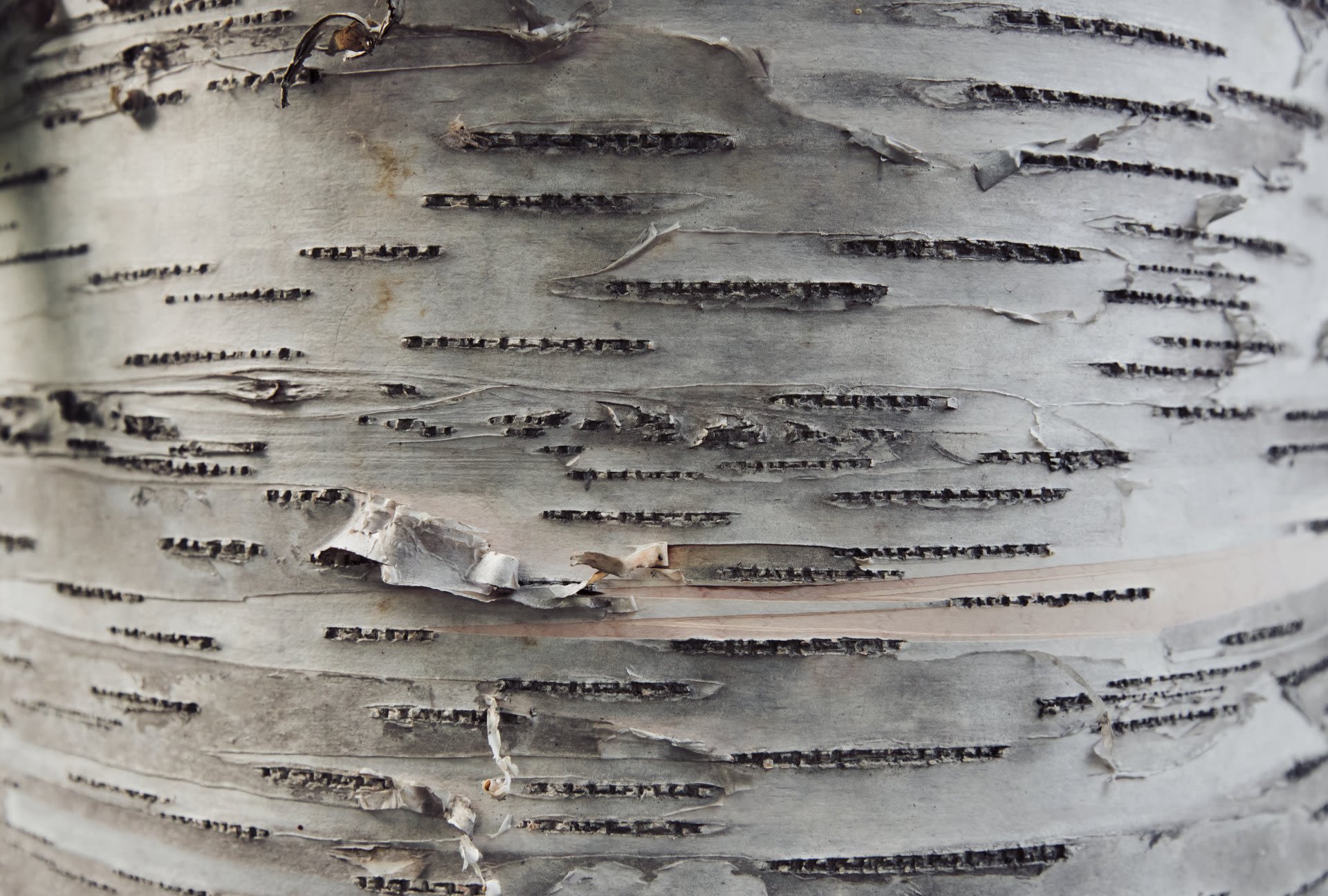
After a night under the stars in my cabana and a hearty breakfast, the time had come to face the river.
Our group was divided into smaller teams based on the program we had signed up for. The MKC offers a variety of programs, from one-day introductory lessons to a full week on the river. There are programs that cater to seniors, to families, to experienced paddlers and to those who, like me, want to learn the basics.
I was doing the “Zero to Hero” one-day program that is designed as an introduction to whitewater canoeing. There were 4 other people in the group, two couples from Ontario who were fairly experienced paddlers, but looking to gain whitewater skills.
After suiting up with all our whitewater gear (wetsuits, helmets, lifejackets all provided by the MKC), we loaded up in the van for the short drive down to the section of river we were going to use for the day.
In a whitewater canoe, instead of sitting on a bench as you might when paddling on a calm lake, you kneel on foam pads on the floor of the canoe with your feet tucked under the bench behind you. This gives you more control of the vessel as you manoeuvre through stronger currents in a river where space may be tight and reaction times shorter.
This made me a bit apprehensive as I feel much more comfortable in a vessel that allows me an easy exit, such as a traditional canoe or a paddle board. When I mentioned my apprehension to the guides, they were completely understanding and were excellent about adjusting my programming to fit my pace and comfort level.
The entire experience was a no-pressure situation, where the focus was on creating a positive experience for each individual paddler instead of pushing for the group to tick of certain skills. The guides wanted each of us to gain our own personal successes and they were completely calm and clear with their instructions and expectations. It made for an incredibly welcoming atmosphere and made my experience top-notch.
The morning on the river
The day was split into two parts. The morning was spent in a big eddy (a calm portion of the water with little current) getting a basic overview of the canoe. First we went over various basic strokes such as forward and reverse, as well as the classic J stroke and the draw and pry strokes.
Next we learned how to use our body to control the canoe, practicing onside and offside carves and S turns.
Before we practised anything in the current, we went over what to do in the event you fall in water and how to move down river in currents. The guides got in place and we all took a turn swimming out into the currents and riding some rapids on our backs before practising exiting the current. We finished the morning by using the moves we had practised to learn how to enter and exit sections of faster current and rapids in the river.
We headed back to the centre for lunch.
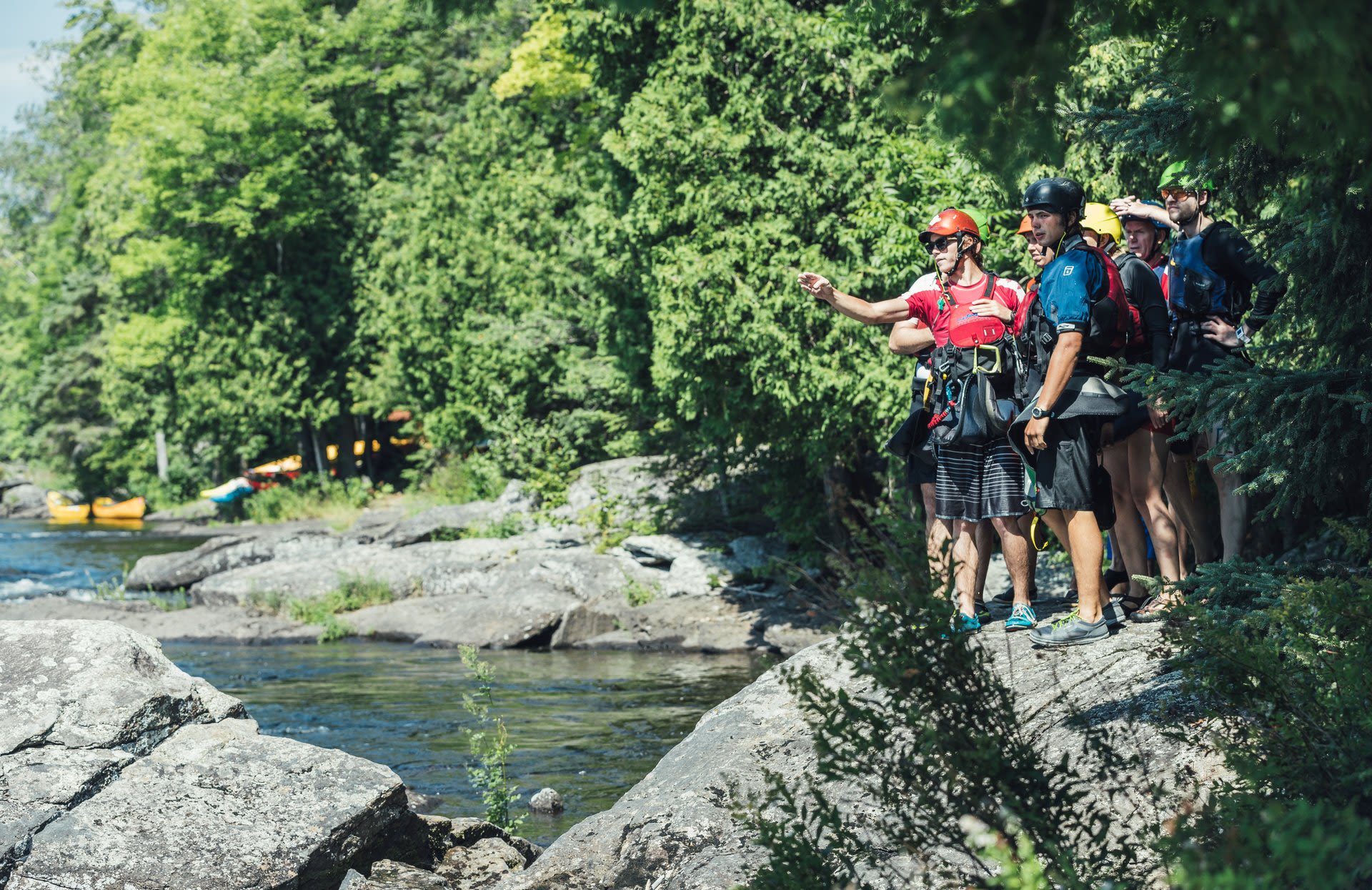
The afternoon on the river
The morning was an extremely helpful session to learn all the basic strokes and manoeuvres, but the afternoon session is where we put it all together.
Here is where I felt my skills really level up.
We went over different ways to cross through current on a river (without losing too much ground downstream) using ferrying methods (moving horizontally across a section of current without going downstream) and S turns (a more dynamic way to cross through current).
Again, the guides were extremely patient and inclusive and made it very clear that their job was to give us skills and help us to feel more empowered in the water. This was not about reaching a certain level, but about improving our personal skills. I felt that they did an amazing job helping me get through the adversity and apprehension I felt in the water in the morning and they cheered me on as I improved in the afternoon.
It was qute impressive to watch the head guide move so seamlessly through water as he showed us techniques. His confidence and effortless movement on the water inspired me to push my own skills forward.
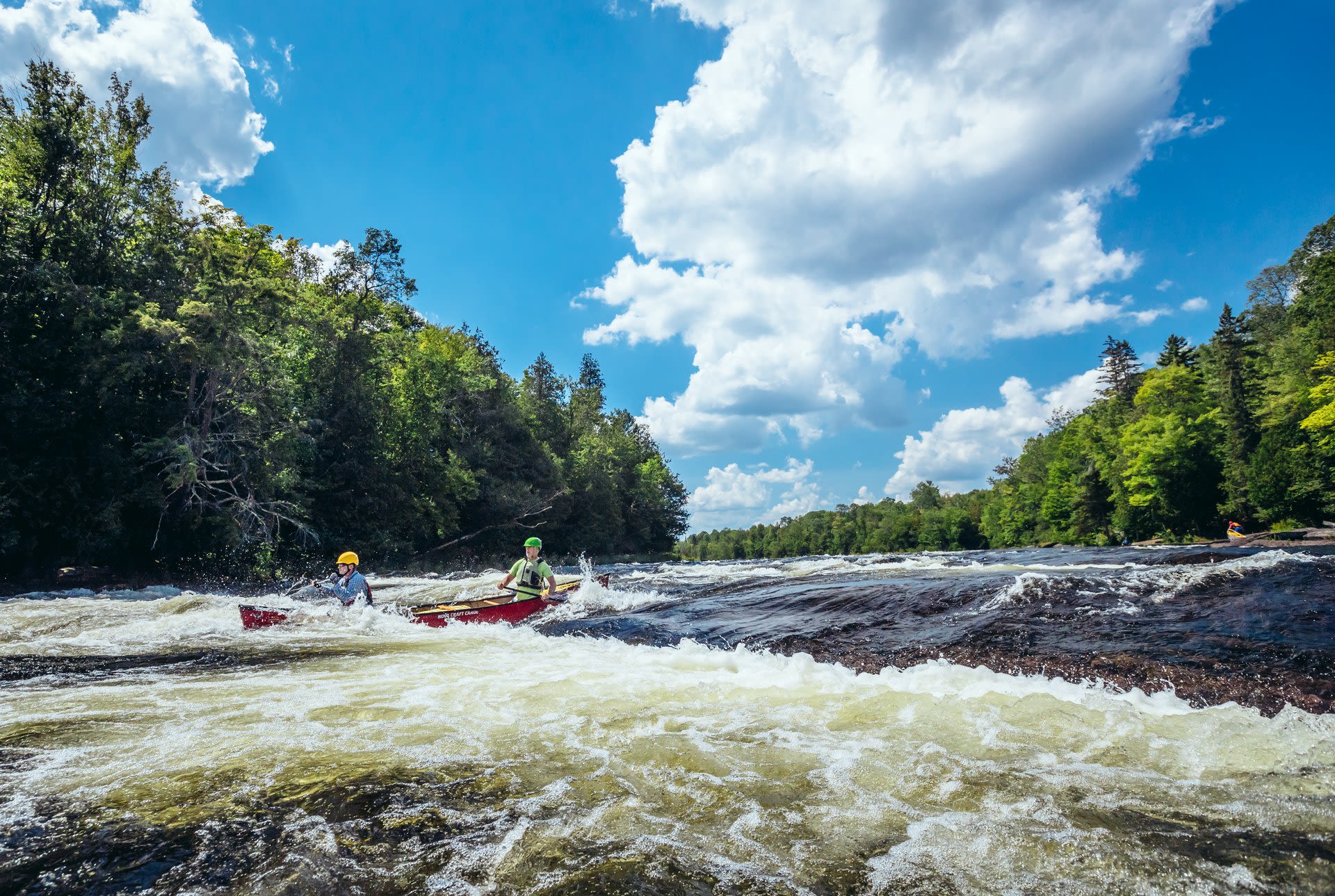
Things to know about the MKC
I didn't know what to expect when I first arrived at the MKC but I was blown away by the chill and inclusive atmosphere, the level of expertise and professionalism of the guides and the quality of the food offered.
The paddlers at the centre were a mixed group of families, locals who come back every summer, people from the city looking to learn a new skills, older couples and even one guy who came all the way from Saskatoon to do an intensive 5-day course. Uniting everyone was a love of paddling and the staff at the centre do an excellent job of fostering that passion.
And the ultimate surprise for me came in the way of food. Served during my stay was an array of healthy, home cooked meals that included locally sourced meats and vegetables, delicious salads with great dressings, rice and soups. The food was super healthy and nourishing but also delicious and satisfying -- the perfect fuel for a day of activity. As somebody with a diploma in nutrition, I give MKC full marks for the quality. If I worked at the centre for the summer, I'd be stoked to eat like this every day.
When I asked Stefi about it, she said, "I just have them cook the way I would want to eat every day."
Between the food and the quality of the experience, the MKC is definitely worth travelling to Ontario for. I might just have to come back for a week next summer.
How To Experience Whitewater Paddling:
Learn to paddle from the pros on this 5-day adventure or this 3-day glamping trip.
Whitewater paddling and rafting are also part of our 6-day road trip that follows the Route Champlain.
The Madawaska Kanu Centre is an excellent place to hone your whitewater paddling skills for use in any future paddling adventures in more remote parts of the country. Reach out to us to plan a custom itinerary or to learn more about paddling opportunities in Canada.

